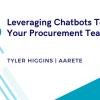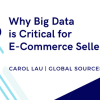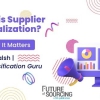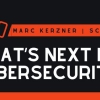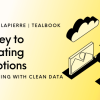When the House of Commons Science and Technology Committee released its 'Robots and Artificial Intelligence' report last month, it was a much-needed shot of adrenaline, encouraging the government to take seriously the impact of robotics and artificial intelligence on the future UK workforce. However, what was not clear was the focus companies should take in order to be on the upside of the jobs outlook in an increasingly automated world.
To summarise the report:
Improvements in productivity and efficiency, driven by robotics and AI, will have implications for the UK workforce, but there is no consensus on the precise nature of those impacts. Some predict rising unemployment, while others foresee a transformation in the types of employment available, made possible by the increasing pervasiveness of robotics and AI throughout the world of work.
There is a very good reason that that the select committee received conflicting views about what the impact will be on employment. It’s simply because experts just don’t know.
When analysing whether we’ve got the correct skillset to go forward, it’s important to look at history and the lessons it has taught us in automation. Automation has been changing the world of work for a few centuries now. However, it has not led to mass unemployment, or the destruction of the workforce. In general, when faced with automation, people have simply acquired different skills and made use of them to earn a living differently.
If that’s what history tells us, why might the AI and robotics revolution be different? The massive change with the robotised and AI world is that in the mid-future there may be no uniquely human skills, meaning that those with capital can and will be able to make it work entirely for themselves without the need for anybody else, leaving the un-capitalised facing a real dilemma.
What will robots mean for employment right now, and what do companies need to do to take advantage?
Software robots are largely still replacing human hands, muscles and very basic reasoning, and they are mostly being used where we have demoralisingly already tried to turn humans into robots (for example, large service delivery centres). This type of robot is a productivity tool no different from a PC. Even as smarter cognitive technology comes online over the next few years, we will still be using the technology to increase productivity in a human-centric environment
So in this world of intelligent automation but not true AI, how should companies act? Making the most of automation in service industries requires a methodical but agile approach. In the run up to a more connected AI world, here is what companies should be considering:
1. Engage. Get in control and have a plan. Get IT and your digital team on side so that they can support your vision of automation within operations, ensuring that you are focused on the problem, and not the technology solutions.
2. Improve. Make sure you have your processes and operations sorted before you start automating them. Doing the wrong thing faster won’t help anybody.
3. Orchestrate. Recognise that you are going from manual to automated. Investing in intelligent orchestration technology will help to keep you in control of the journey, and will help you plot your map to better automation. It will also give you the tools to ensure you’ve got a clear business case for what should be automated first, helping you to get the process right before automation. Beyond that, you’ll also have complete transparency as to whether automation has worked properly.
4. Use the right tool for the job. Understand the different human skills that are deployed in your organisation and then apply the right tools - whether it be a click bot or a natural language component, a classifier or the rules engine in your automation component.
5. Breathe. Don’t throw the baby out with the bathwater. Don’t think that just because you’ve got smart machines that this removes the need for process, rules and practices.
Remember - you have smart people and they are still your most valuable asset. In fact, a great illustration of this point comes from Dave Coplin, Chief Envisioning Officer at Microsoft, who may have said it best: “[it’s] never been about humans versus machines…the story, certainly from our perspective, in the personal computer revolution is about how we augment humanity and how we enable human beings to rise up and achieve more than they could on their own.



